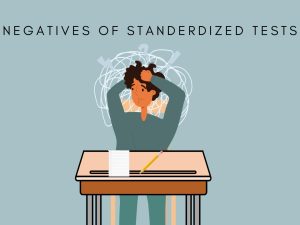Eating animals hurts us the most
Guest writer Harper Stumb explores the dark side of the meat industry.
May 19, 2023
 The debate over the consumption of other animals has persisted for millennia, but while plenty of attention has been given to the brutality with which hogs are cut down in slaughterhouses and the hellish conditions chickens suffer in industrial poultry farms, the more serious ramifications of eating meat have gone largely unnoticed. Most Americans see the meat issue as a purely ethical debate, but in truth the meat industry squanders precious resources and ravages the natural world, contributing to global hunger and climate change on such a scale that eating animals could hardly be considered beneficial to mankind.
The debate over the consumption of other animals has persisted for millennia, but while plenty of attention has been given to the brutality with which hogs are cut down in slaughterhouses and the hellish conditions chickens suffer in industrial poultry farms, the more serious ramifications of eating meat have gone largely unnoticed. Most Americans see the meat issue as a purely ethical debate, but in truth the meat industry squanders precious resources and ravages the natural world, contributing to global hunger and climate change on such a scale that eating animals could hardly be considered beneficial to mankind.
Scientists have determined that Earth is currently capable of feeding 11 billion people. Why then, you might ask, is over 10 percent of the world’s measly 7.8 billion going hungry? Put simply, we have decided to give our food not to poor humans who need it, but to animals that wealthy consumers can eat. For example, 45 percent of the corn grown in the US is ground into animal feed, while only 10 percent becomes food for humans. We use nearly five times more of our agricultural yield to feed our food than we dole out to humans. But that’s not the worst of it. As your high school science teacher likely taught you, consumers can only gain 10 percent of the energy of their prey, and we’re no exception. This means that whenever you eat beef, chicken or any other type of meat, you only receive 1/100th the calories you would have gotten had you simply dined on the plants that fed those animals in the first place. Even the actual mass of food lost through the meat industry is astonishing: for every 16 pounds of animal feed fed to a cow, only one pound of edible beef is produced. Skeptics might argue that this is redundant. Should even a portion of the produce that went into feeding livestock be set aside for humans, food prices worldwide would plummet; dealing a massive blow to global hunger. The question is not if our planet can feed its population, but rather if we’re willing to let it.
The environmental cost of the meat industry is equally devastating. You’ve likely heard that the Amazon Rainforest is being clear-cut at an alarming rate, but did you know that 65-70 percent of that deforestation produces grazing land for beef cattle? Our gluttonous demand for meat has destroyed thousands of forested acres worldwide, driving countless species extinct. Worse, fewer trees to absorb carbon dioxide means more greenhouse gas in the atmosphere, but the meat industry is responsible for plenty of direct emissions as well. Just one beef cow annually releases 200 pounds of methane: a greenhouse gas 28 times more potent than CO2 when it comes to exacerbating climate change. With this in mind, it’s no surprise that livestock account for over 14.5 percent of global emissions, even more than transportation. Given the appalling effect meat consumption has on the natural world –and the countless human industries that depend on it–, it’s clear that our carnivorous habits are harder to justify than we thought.









abby dykes • May 19, 2023 at 12:46 pm
such a cool article — learned a lot of information I never knew before!